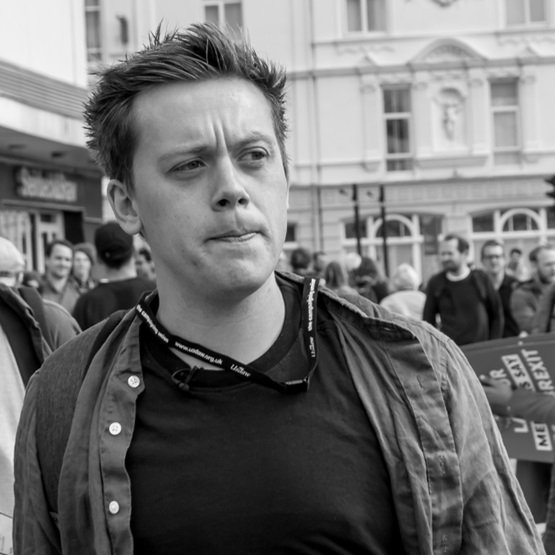Owen Jones is a prominent British journalist, author, and commentator widely recognised for his forthright advocacy of left-wing policies and social justice issues. Born on 8 August 1984 in Sheffield, England, and raised in Stockport, Greater Manchester, Jones was influenced by his family’s strong political and trade union background. His upbringing instilled in him a deep commitment to political activism, which he carried into his academic and professional life
.
Jones studied History and Politics at University College, Oxford, where he became actively involved in student politics and grassroots campaigns. His time at Oxford not only shaped his political views but also honed his skills in argumentation and public speaking, preparing him for a career in journalism.
After graduating from Oxford, Jones began his career by writing for The Guardian, where he quickly established himself as a vocal critic of social inequality, austerity policies, and conservative politics. His columns, known for their incisive analysis and impassioned prose, have made him a significant figure in British journalism.
In 2011, Jones published his first book, “Chavs: The Demonisation of the Working Class”, which became a defining work in discussions about class in the United Kingdom. The book challenges the media portrayal of the working class as lazy and culturally deficient, arguing that this narrative serves to justify widening economic disparities and the dismantling of social welfare. “Chavs” was acclaimed for bringing attention to the complexities of class prejudice and economic injustice, sparking nationwide debate.
Jones’s second major work, “The Establishment: And How They Get Away With It”, released in 2014, builds on his critique of British society. In this book, Jones delves into the interconnectedness of the UK’s political, economic, and media elites, whom he accuses of operating a self-serving system that perpetuates inequality. The book is a thorough examination of the mechanisms through which power is concentrated and maintained, and it calls for a radical transformation of society to dismantle these structures.
Beyond his books and journalism, Owen Jones is an active commentator on television and radio, where he frequently participates in debates on key political issues. His media appearances are marked by his articulate and often confrontational style, which has both attracted a large following and provoked criticism from political opponents.
Jones is also a prolific user of social media, utilising platforms like Twitter to engage directly with the public, mobilise support for various causes, and comment on current events. His online presence is an extension of his journalistic work, providing a space for advocacy and discussion.
As an openly gay man, Jones has been a vocal advocate for LGBTQ+ rights. He has written extensively about the challenges faced by the LGBTQ+ community, and he uses his platform to push for greater equality and protection of LGBTQ+ rights.
Owen Jones’s influence extends into political activism; he is often seen participating in protests and public campaigns, particularly those opposing austerity measures, advocating for workers’ rights, and supporting anti-racism initiatives. His activism is driven by a belief in participatory democracy and the power of collective action.
Throughout his career, Owen Jones has remained a staunch defender of left-wing ideals, advocating for a more equitable society that prioritises the needs of the many over the interests of a privileged few. His work continues to challenge mainstream narratives and inspire a new generation of activists and thinkers in the fight for a fairer society.


